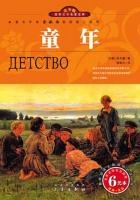I have said that it is not a common thing to meet an American who belongs to no denomination of Christian worship. This I think is so but I would not wish to be taken as saying that religion, on that account, stands on a satisfactory footing in the States. Of all subjects of discussion, this is the most difficult. It is one as to which most of us feel that to some extent we must trust to our prejudices rather than our judgments. It is a matter on which we do not dare to rely implicitly on our own reasoning faculties, and therefore throw ourselves on the opinions of those whom we believe to have been better men and deeper thinkers than ourselves.
For myself, I love the name of State and Church, and believe that much of our English well-being has depended on it. I have made up my mind to think that union good, and am not to be turned away from that conviction. Nevertheless I am not prepared to argue the matter. One does not always carry one's proof at one's finger ends.
But I feel very strongly that much of that which is evil in the structure of American politics is owing to the absence of any national religion, and that something also of social evil has sprung from the same cause. It is not that men do not say their prayers. For aught I know, they may do so as frequently and as fervently, or more frequently and more fervently, than we do; but there is a rowdiness, if I may be allowed to use such a word, in their manner of doing so which robs religion of that reverence which is, if not its essence, at any rate its chief protection. It is a part of their system that religion shall be perfectly free, and that no man shall be in any way constrained in that matter.
Consequently, the question of a man's religion is regarded in a free-and-easy way. It is well, for instance, that a young lad should go somewhere on a Sunday; but a sermon is a sermon, and it does not much concern the lad's father whether his son hear the discourse of a freethinker in the music-hall, or the eloquent but lengthy outpouring of a preacher in a Methodist chapel. Everybody is bound to have a religion, but it does not much matter what it is.
The difficulty in which the first fathers of the Revolution found themselves on this question is shown by the constitutions of the different States. There can be no doubt that the inhabitants of the New England States were, as things went, a strictly religious community. They had no idea of throwing over the worship of God, as the French had attempted to do at their revolution. They intended that the new nation should be pre-eminently composed of a God-fearing people; but they intended also that they should be a people free in everything--free to choose their own forms of worship. They intended that the nation should be a Protestant people; but they intended also that no man's conscience should be coerced in the matter of his own religion. It was hard to reconcile these two things, and to explain to the citizens that it behooved them to worship God--even under penalties for omission;but that it was at the same time open to them to select any form of worship that they pleased, however that form might differ from the practices of the majority. In Connecticut it is declared that it is the duty of all men to worship the Supreme Being, the Creator and Preserver of the universe, but that it is their right to render that worship in the mode most consistent with the dictates of their consciences. And then, a few lines further down, the article skips the great difficulty in a manner somewhat disingenuous, and declares that each and every society of Christians in the State shall have and enjoy the same and equal privileges. But it does not say whether a Jew shall be divested of those privileges, or, if he be divested, how that treatment of him is to be reconciled with the assurance that it is every man's right to worship the Supreme Being in the mode most consistent with the dictates of his own conscience.
In Rhode Island they were more honest. It is there declared that every man shall be free to worship God according to the dictates of his own conscience, and to profess and by argument to maintain his opinion in matters of religion; and that the same shall in no wise diminish, enlarge, or affect his civil capacity. Here it is simply presumed that every man will worship a God, and no allusion is made even to Christianity.















